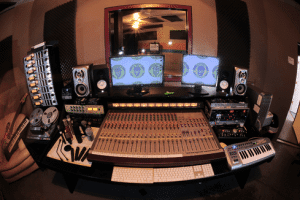Three Mistakes Indie Recording Artists Make

With the accessibility of recording technology, making an album on your own has never been easier. You can even promote, sell and distribute your music online from your laptop. However, there are still principles of producing professional sounding music that shouldn't be ignored.
Here are three common mistakes that indie recording artists make:
Quantize Everything
The days of having to perform your music perfectly to make a recording are long gone. Thanks to high-quality samples and MIDI programming software, you’re just one click away from having all of your notes play perfectly in time. However, unless you’re making EDM, this can sometimes be a liability.
No matter how well an instrumentalist can play, there are nuances and imperfections in every human performance that add character. Whether consciously or not, listeners can perceive this and generally prefer it to a perfect MIDI playback. The success of bands like Mumford & Sons, who have a more organic sound, are proof that listeners still want to hear a person–not a computer–playing an instrument.
Rather than quantizing everything, try practicing a little more and give your recording the extra touch of a human performance on at least some of your virtual instrument tracks.
Too Much Processing
Indie recording artists can sometimes get a little too happy with their plugins. Whether it’s overcompressed to the point of having no dynamic life or it’s too much reverb to the point of sounding hokey, laying off the plugins a bit can sometimes be your best bet.
Take the time when you're tracking to get the sound you want. Play with mics and positioning. Do multiple takes. Go with the one that captures you. Rather than using plugins as a way to fix a track, try to think of them as being there to highlight the magic of what’s already in the recording. Remember, less is more.
Do Your Own Mastering
There’s a reason that virtually all major recording artists hire someone outside to master their records. Mastering is a complex skill and working knowledge that requires high end audio equipment, monitors, an acoustically-treated space, natural talent and a lot of experience.
Mastering puts the finishing touches on your album and can often make the difference between a bright, lively sound one that falls flat on the floor. Time and again, we get projects from clients who tried to master their own music only to eventually decide to hire us.
With all of the time and hard work you've put into recording and mixing your own music to get it to 80%, you can’t afford to not hire someone to master your record and add that final 20%.
If you record your own music, you’ll likely save yourself some time and end up with a better sounding mix by avoiding these three common mistakes. And if you do decide to hire someone to do your mastering, don’t hesitate to give us a ring!




